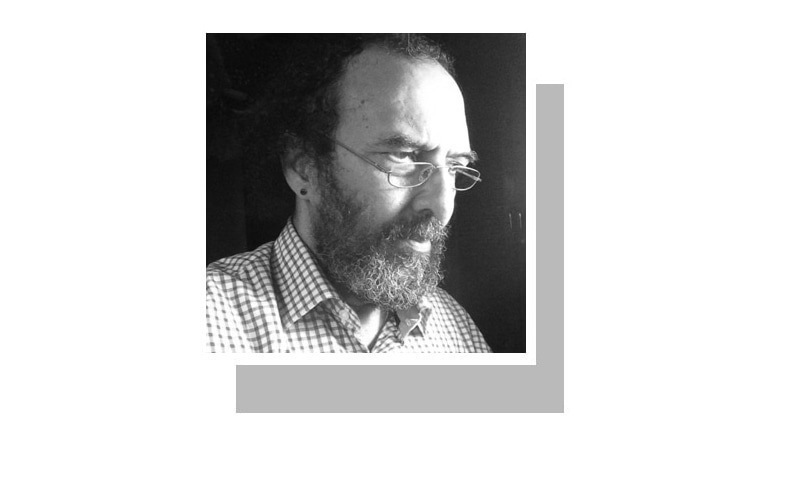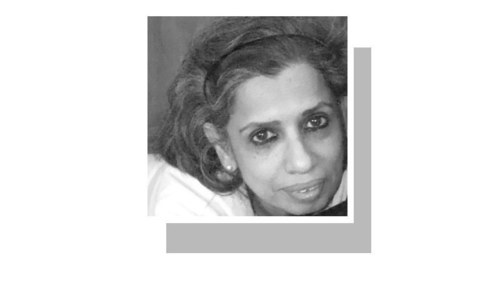A SHORT essay ascribed to legendary Khwaja Ahmed Abbas ribs India’s atavistic urge to change names of cities and towns from their extant versions to something old if vague. When Benares was renamed Varanasi to comply with an identity rooted in mythology, Abbas wrote: “I landed at the railway station. The freshly painted signboard celebrated Varanasi. Outside the station, the sweetshop announced itself as Varanasi Mishthaan Bhandaar. At the post office, the clerk was stamping letters and parcels with his new official seal. Varanasi, Varanasi, Varanasi, it went. I asked the man the name of the city we were both in. He said Benares.”
It’s still Banarasi sari, Banarasi thumri and Banarasi paan, however, just as Mumbai continues to have its Bombay High Court or Bombay Stock Exchange and Bombay Duck, which is actually the name of a delicious fish.
Curiously, the politically inspired name-changing spree has ignored a rather obvious foreign influence from its ambit — the keenly sought and embraced identity called Hindu. It is uniformly acknowledged that the name originated in West Asia, apparently as a description of India’s dark-tanned inhabitants.
There’s reference in a Persian verse by Hafiz Shirazi to a black mole on the beloved’s cheek, for which the poet, to his ruler’s chagrin, was willing to surrender the fabled cities of Samarkand and Bukhara. (Agar aa’n Turk-i-Shirazi bidast aarad dil-i-maara’h / Bi khaal-i-hindu yash bakhsham Samarkand-o-Bukhara ra.)
Good manners elude the RSS, given its gargantuan appetite for hate. For this and more, it cultivates a perverse sense of history.
It is also agreed that there was no reference to Hindu in Vedic texts. What passes for Hindu revivalism is essentially a new construct, a work in progress. That’s why well-regarded historians believe that Hindus can be anything but fundamentalists, for unlike Semitic religions and some others such as Sikhism, there is no all-embracing fundamental to define a community.
Respected historian Irfan Habib stirred up the pot for the ruling Bharatiya Janata Party the other day, slamming its apparent resolve to erase Muslim references in India’s past. Habib cocked a snook at the ruling party by pointing out how the surname of Amit Shah, the BJP’s president handpicked by Prime Minister Narendra Modi, is of Persian origin.
In the pre-election melee of changing names of towns and cities from their Muslim references to a real or imagined ancient origin — Allahabad as Prayaag and Faizabad as Ayodhya, for example — Shah too must drop his name, says Habib.
His surname ‘Shah’ is of Persian origin and not of Gujarati, the professor told the Times of India. That insight should ideally give heart to the BJP’s opponents ahead of next year’s electoral showdown.
Sadly, some self-serving ideologues of the main opposition Congress party seem to be searching for a Hindutva-like identity themselves, and have announced in poll-bound Madhya Pradesh that cow urine would be commercially packaged as an elixir.
“Even the term Gujarat itself is of Persian origin. It was called Gurjaratra earlier. They should also change it,” the 87-year-old professor emeritus says. When recently the Modi establishment renamed Delhi’s Aurangzeb Road, Habib challenged the government to erase the name of Todarmal from a road named after Emperor Akbar’s Hindu aide.
The BJP government’s renaming spree is very much in line with the Rashtriya Swayamsevak Sangh’s (RSS) Hindutva policy, says Habib, recalling that in Pakistan too ill-advised changes were made to comply with the country’s regressive Muslim ideologues.
“The BJP and its right-wing supporters want to change things which are non-Hindu, particularly of Islamic origin.”
Habib’s comment on Shah came when a BJP deputy suggested that the city of Agra be renamed after a trading community that has a presence in the city. He claimed his Agrawal community were followers of Maharaja Agrasen who allegedly ruled Agra.
Habib trashed the suggestion, saying the entire history of Maharaja Agrasen was mythical.
“It’s nothing but fiction. Secondly, the Agrawal community claims its origin from Agroha in Haryana, and not Agra. So, both the arguments for renaming the city do not hold water.”
How did Agra then come about? Habib, a widely respected academic, believes the first time one heard of ‘Agra’ was in the reign of Sikandar Lodhi in the 15th century. Before that the area was more prominently known as Doab — land between Ganga and Yamuna.
Disowning Muslim influence in India with spite could recoil on the RSS, which has been traditionally headed by Maharashtrian Brahmins. Their handpicked Maharashtra Chief Minister Devendra Fadnavis too is a Brahmin whose surname was a Mughal title, as zamindar and munim elsewhere have a Muslim imprint.
Most pivotal in the region’s history was the peshwa, a Persian gift. There would be gastronomical issues with gulab jamun, jalebi, halwa and kulfi, which could be discarded for their Muslim affinity. The expansion of Islam sent many foreign communities scurrying to India, and they all brought their food with them. Each wave brought a culinary habit and with the passage of time all of these got absorbed in the local cuisine of India.
When the Marathi-speaking RSS chief next holds a public meeting he may want to refrain from calling it a ‘jahir sabha’, a Marathi blend of Persian (zaahir) and Sanskrit (sabha).
Marathi poems of Eknath in the 17th century were presented as arjadast (arza-dast). Mocking the chauvinist RSS, Marathi retains Arabic-Persian idioms and expressions in their original forms, such as adab “culture, literature, good manners”.
Good manners, however, elude the RSS, given its gargantuan appetite for hate. For this and more, it cultivates a perverse sense of history.
The Urdu poet Firaq Gorakhpuri, a Hindu, it has to be said in these times of polarising identities, described the making of his India as a confluence of foreign caravans. “Sarzameen-i-Hind par aqwaam-i-aalam ke Firaq, qaafiley bastey gai, Hindostan banta gaya.”
There is no scope for any mob to un-ring the bell of history even by whitewashing the names of a few roads and cities.
The writer is Dawn’s correspondent in Delhi.
Published in Dawn, November 13th, 2018















































